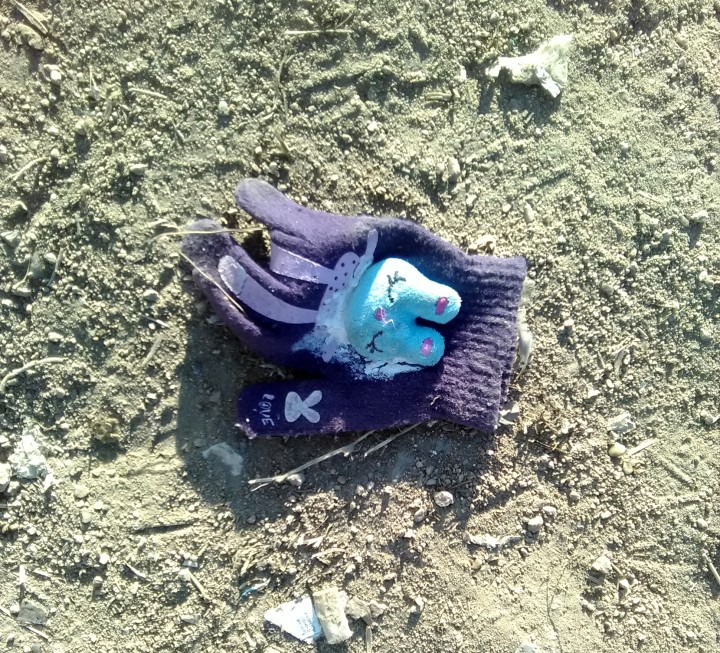I have been sent on a day trip to Idomeni on a mission with PRAKSIS NGO, just a metre away from the frontier of hope. The caravan of buses carrying people, who want to leave Greece, patiently waits at the petrol station a few kilometres behind the refugee camp. The police officers allow two buses only at a time to approach the camp in order to be able to control the flows. I see around me many refugee families with children, most of them very young, wearing hats and mittens but the most characteristic thing is their smile especially when a hand offers them chocolate.
In the short distance on the road to the border I become aware of their fatigue and anxiety but also their hope. The NGO volunteers in the camps provide sleeping bags and clothes, they offer food, water and juices outside the provisional camps, they ask about needs for medicine or medical services. They work 24 hours, 7 days a week in shifts. The relations among them are harmonious. As people move on, they get what they need and they are directed towards the big tent of the International Organisation for Migration (IOM), where they have to show their documents and say where they come from. If their documents are accepted by the border police, they pass, if not, they go back. Nothing else matters apart from the documents. The officers explain to you that you pass if you come from Syria, maybe even if you come from Afghanistan or Iraq. They send you back if you come from anywhere else even if you come from Palestine. They send you back even if you have little children, hold a baby or are pregnant. The UNHCR gets involved when some emergency and controversial issue appears. In such cases hope arises again but is not always followed by a positive result.
A desperate man from Iran, who has reached his limits tries to jump over the fence. He injures himself badly; an ambulance transfers him to the nearest hospital. Some boys from Morocco murmur: bad bad… Others speak on their mobile phones with their relatives who managed to cross asking them, “How did you do it? We have been sent back.” From about 500 people who arrived at the border that day, only 200 managed to get through. The others were sent back. Back where? Back to their countries? Back to war and poverty? “But that’s what we are trying to escape from, don’t you get it? We have also written it on the tents of the Organisations trying to make you understand: burn borders, not coal…”
Being a refugee is one thing, being an economic migrant is another; as the authorities explain it. Coming from Syria is one thing but coming from Palestine is something else. What kind of criteria are those? Our civilization keeps the borders closed and opens them under certain conditions. I think that those conditions must be re-examined. Immediately.










